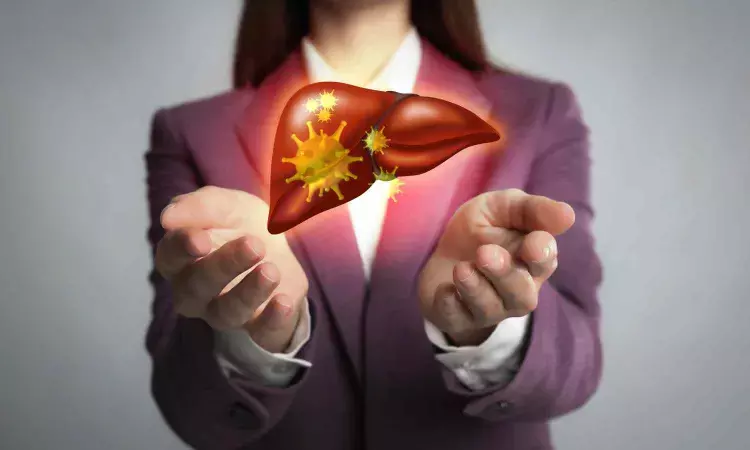- Home
- Medical news & Guidelines
- Anesthesiology
- Cardiology and CTVS
- Critical Care
- Dentistry
- Dermatology
- Diabetes and Endocrinology
- ENT
- Gastroenterology
- Medicine
- Nephrology
- Neurology
- Obstretics-Gynaecology
- Oncology
- Ophthalmology
- Orthopaedics
- Pediatrics-Neonatology
- Psychiatry
- Pulmonology
- Radiology
- Surgery
- Urology
- Laboratory Medicine
- Diet
- Nursing
- Paramedical
- Physiotherapy
- Health news
- Fact Check
- Bone Health Fact Check
- Brain Health Fact Check
- Cancer Related Fact Check
- Child Care Fact Check
- Dental and oral health fact check
- Diabetes and metabolic health fact check
- Diet and Nutrition Fact Check
- Eye and ENT Care Fact Check
- Fitness fact check
- Gut health fact check
- Heart health fact check
- Kidney health fact check
- Medical education fact check
- Men's health fact check
- Respiratory fact check
- Skin and hair care fact check
- Vaccine and Immunization fact check
- Women's health fact check
- AYUSH
- State News
- Andaman and Nicobar Islands
- Andhra Pradesh
- Arunachal Pradesh
- Assam
- Bihar
- Chandigarh
- Chattisgarh
- Dadra and Nagar Haveli
- Daman and Diu
- Delhi
- Goa
- Gujarat
- Haryana
- Himachal Pradesh
- Jammu & Kashmir
- Jharkhand
- Karnataka
- Kerala
- Ladakh
- Lakshadweep
- Madhya Pradesh
- Maharashtra
- Manipur
- Meghalaya
- Mizoram
- Nagaland
- Odisha
- Puducherry
- Punjab
- Rajasthan
- Sikkim
- Tamil Nadu
- Telangana
- Tripura
- Uttar Pradesh
- Uttrakhand
- West Bengal
- Medical Education
- Industry
Efruxifermin Fails to Significantly Reduce Fibrosis in Compensated Cirrhosis: Study

According to a new study published in The New England Journal of Medicine, efruxifermin, a bivalent fibroblast growth factor 21 (FGF21) analogue, failed to significantly lower fibrosis in individuals with compensated cirrhosis due to metabolic dysfunction associated steatohepatitis (MASH). Although it had been promising in previous trials for stage 2 or stage 3 fibrosis, the effectiveness of efruxifermin in patients with advanced fibrosis (stage 4) was unclear. This phase 2b, randomized, double-blind, placebo-controlled trial was conducted by Mazen N. and colleagues.
The trial involved 181 patients with biopsy-proven compensated cirrhosis due to MASH (stage 4 fibrosis). Patients were randomly assigned to receive weekly subcutaneous efruxifermin (28 mg or 50 mg) or placebo. The main outcome was regarded as a decrease by at least one stage of fibrosis without MASH deterioration at 36 weeks. Secondary outcomes were fibrosis decrease at 96 weeks. Liver biopsy was done in 154 patients at 36 weeks and in 134 patients at 96 weeks.
Key Findings
Reduction in fibrosis without MASH worsening at 36 weeks in:
• 13% of placebo patients (8 of 61 patients).
• 18% of patients receiving 28-mg efruxifermin (10 of 57 patients).
• 19% of patients receiving 50-mg efruxifermin (12 of 63 patients).
At 96 weeks, reduction of fibrosis without worsening of MASH was observed in:
• 11% of patients in the placebo group (7 of 61 patients).
• 21% of patients in the 28-mg efruxifermin group (12 of 57 patients).
• 29% of patients in the 50-mg efruxifermin group (18 of 63 patients).
• The between-group difference in fibrosis reduction at 96 weeks between the 50-mg efruxifermin group and placebo was 16 percentage points (95% CI, 2 to 30).
• Gastrointestinal adverse events were more common in patients receiving efruxifermin, but most were mild or moderate.
Efruxifermin failed to significantly lower fibrosis in patients with MASH-induced compensated cirrhosis. More gastrointestinal adverse events were seen in the efruxifermin arms, but these were generally mild or moderate in severity. The findings indicate that although efruxifermin might have some promise, its place in treating advanced fibrosis in MASH is unclear.
Reference:
Noureddin, M., Rinella, M. E., Chalasani, N. P., Neff, G. W., Lucas, K. J., Rodriguez, M. E., Rudraraju, M., Patil, R., Behling, C., Burch, M., Chan, D. C., Tillman, E. J., Zari, A., de Temple, B., Shringarpure, R., Jain, M., Rolph, T., Cheng, A., & Yale, K. (2025). Efruxifermin in compensated liver cirrhosis caused by MASH. The New England Journal of Medicine. https://doi.org/10.1056/NEJMoa2502242
Dr Riya Dave has completed dentistry from Gujarat University in 2022. She is a dentist and accomplished medical and scientific writer known for her commitment to bridging the gap between clinical expertise and accessible healthcare information. She has been actively involved in writing blogs related to health and wellness.
Dr Kamal Kant Kohli-MBBS, DTCD- a chest specialist with more than 30 years of practice and a flair for writing clinical articles, Dr Kamal Kant Kohli joined Medical Dialogues as a Chief Editor of Medical News. Besides writing articles, as an editor, he proofreads and verifies all the medical content published on Medical Dialogues including those coming from journals, studies,medical conferences,guidelines etc. Email: drkohli@medicaldialogues.in. Contact no. 011-43720751


